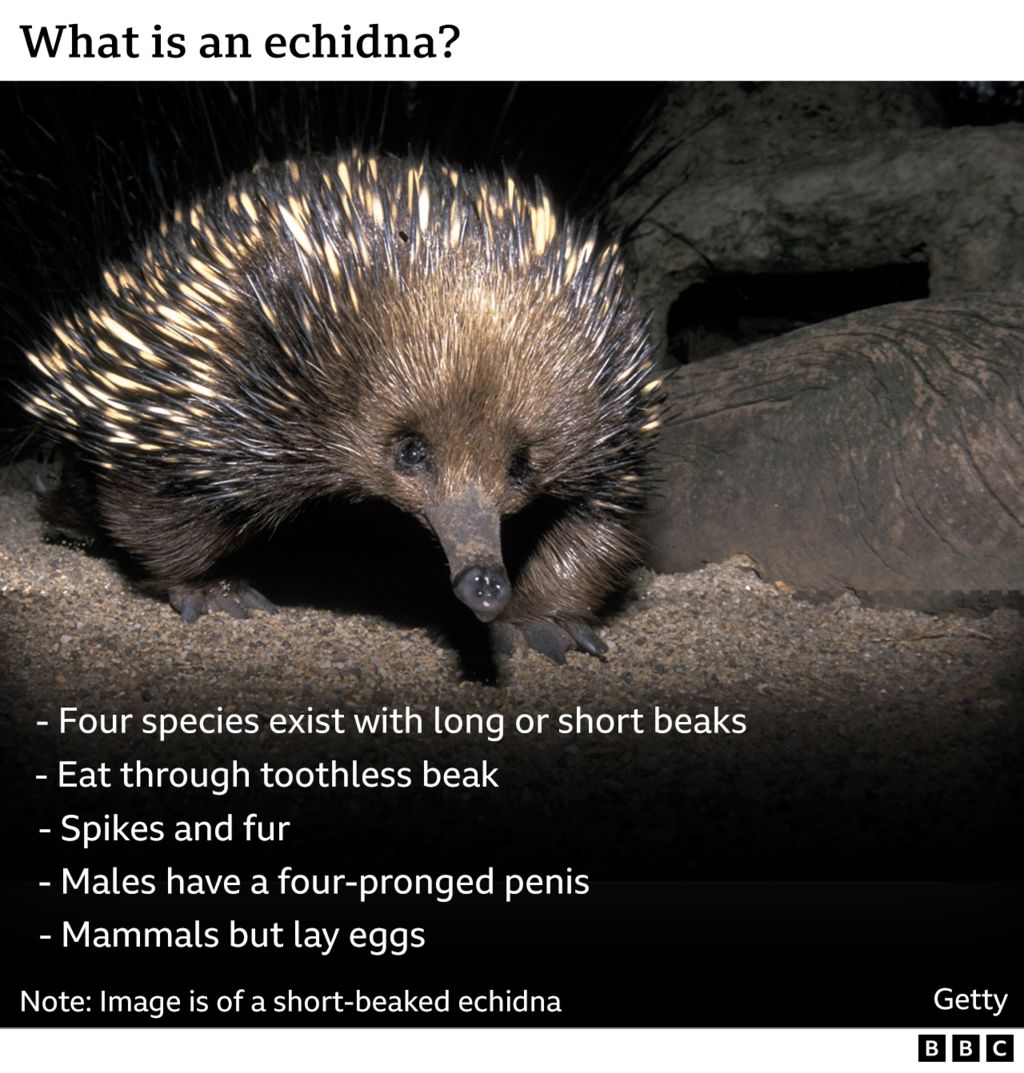-

-
-
Loading

Loading

Scientists have captured footage of an ancient egg-laying mammal, named after Sir David Attenborough, proving that it is not extinct as previously feared. An expedition led by researchers from Oxford University recorded four short clips of the Attenborough long-beaked echidna in Indonesia. Echidnas, also known as "living fossils," are spiky, furry creatures with a beak and are believed to have emerged around 200 million years ago. Until now, the only evidence of the existence of the species "zaglossus attenboroughi" was a decades-old museum specimen. The discovery of the echidna and other new species during the expedition highlights the need for conservation in the Cyclops Mountains, where the animals were found. Despite being critically endangered, Attenborough's long-beaked echidna is not currently protected in Indonesia. The scientists hope that their findings will contribute to efforts to protect the unique wildlife in the region.